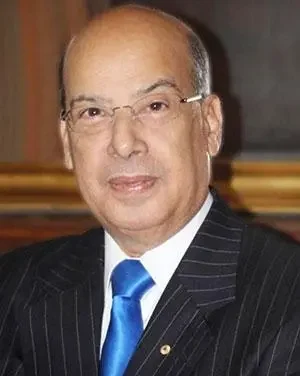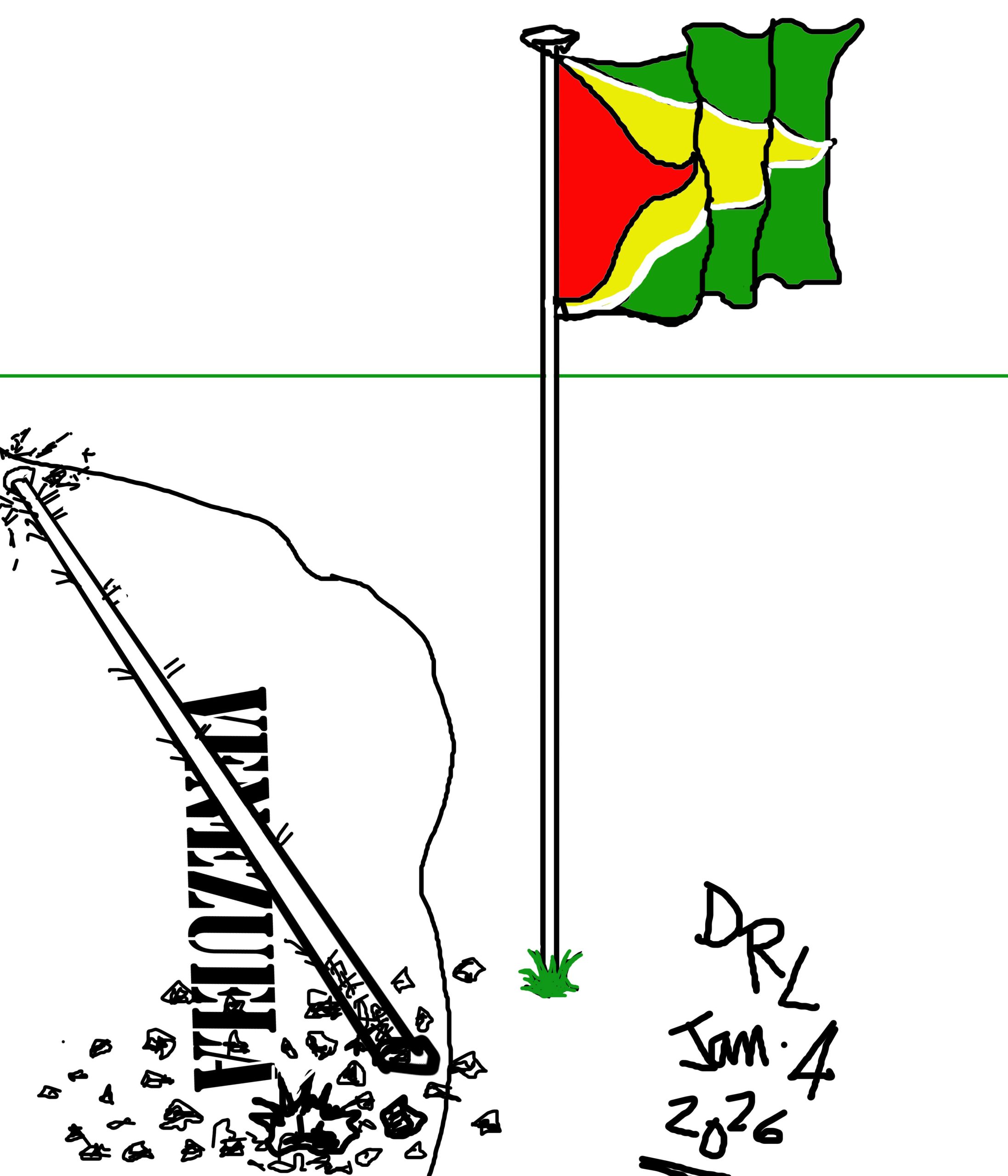Latest update January 10th, 2026 12:30 AM
‘Govt will stick with lopsided ExxonMobil contract’ – Pres. Ali tells New York Times
Sep 30, 2024 News
Kaieteur News – Last week, Guyana’s President Irfaan Ali reaffirmed that his administration will uphold the Stabroek Block Production Sharing Agreement (PSA), even though it heavily favours ExxonMobil and its partners.

President Irfaan Ali being interviewed by international climate correspondent Somini Sengupta at the New York Times Climate Forward event
ExxonMobil Guyana Limited (EMGL) is the operator of the Stabroek Block, with a 45% interest, while Hess Guyana Exploration Ltd. holds 30% interest and China National Offshore Oil Corporation (CNOOC) Petroleum Guyana Limited holds 25% interest.
During an interview at the New York Times Climate Forward event, international climate correspondent Somini Sengupta asked President Ali to address criticisms from Guyanese citizens regarding the Exxon PSA. The agreement exempts the oil companies from paying taxes with Guyana covering those costs out of its share of profit oil, grants a mere 2% royalty on the country’s valuable resources, and allows the companies to recover 75% of their investments before splitting the remaining 25%, of which Guyana receives 12.5%.
President Ali accepted, “I have said this a number of times. They [Exxon, Hess and CNOOC] had the better hand of the deal.” He outlined that his government inherited the deal, which was signed by the previous Coalition Government and Exxon. “But listen, as leaders, there’s something called sanctity of contract. Can I just walk in there and decide, okay, this contract was signed [but] we’re going to abandon this contract [or] we’re not going to honour this contract,” President Ali said.
He asserted that if his administration had chosen to walk away from the contract, they would have faced criticism for not upholding the sanctity of contract. “Right on this stage, you will say that there’s a tyrant and dictator in Guyana who does not respect contract, who does not respect the sanctity of contract and then you might hear that Guyana will be called before every commission globally,” President Ali said.
Ali noted that governments often inherit certain agreements, and in Guyana’s case, his administration has to find ways to maximise the benefits of the contract without renegotiating its terms. Sengupta asked President Ali, whether, in another scenario, would he consider renegotiating the Exxon deal, or if that option was entirely off the table.
In response, President Ali avoided addressing the question of renegotiation directly. Instead, he highlighted that the government has introduced a new PSA to ensure that all future oil agreements will differ from the Stabroek Block deal. “If you examine the new PSAs, you will see that is substantially different than the PSA that the consortium [Exxon, Hess and CNOOC] enjoys,” Ali said. President Ali continued, “But we don’t focus on this. We don’t focus that this is a government that recognized that they had a bad PSA that committed itself to design a new PSA. Went beyond that and implemented a new PSA…”
Sengupta pointed out that Guyanese citizens have accused the country’s Environmental Protection Agency (EPA) of failing to conduct sufficient environmental assessments. She noted concerns that Guyanese taxpayers might be held liable for oil spills due to the type of liability insurance required from oil companies. “In one case, a judge in Guyana has called your Environmental Protection Agency derelict and pliant and said its decisions put your citizens and your environment in grave peril. How do you respond?” Sengupta said.
President Ali first acknowledged that citizens have been critical on various issues. He then noted that his administration is committed to upholding their right to freedom of speech. Moreover, Sengupta highlighted that Norway is frequently cited example of a country that successfully leveraged its oil wealth to improve the well-being and standard of living for its citizens. She noted that Norway imposes over 75% windfall taxes on oil and gas profits. She then asked, “You have a very favorable tax rate. What is your tax rate on oil extraction?”
“You’re talking about a country that is new in oil and gas versus Norway, that has decades of oil and gas experience, and oil and gas revenue,” President Ali said. He added that his government’s priority is to mirror Norway’s success to ensure prosperity for every family, aiming for world-class healthcare, education, and infrastructure to enhance the quality of life for all citizens.
“When we get to that point that Norway had the opportunity to get to after decades of revenue earned from the oil and gas sector…then we can implement anything that Norway implemented, and even do it better,” he added.
The reality in Guyana with the Exxon deal is that last year the country earned US$1.6 billion last year from oil sales and the 2% royalty. However, for that same year the government had to pay over US$1.4 billion taxes for Exxon, Hess and CNOOC to the Guyana Revenue Authority (GRA).
Exxon had reported that while it is subject to Guyana’s income tax laws, the taxes assessed on the company’s operation are paid by the government, rather than the company itself. The provision of the Stabroek Block contract which gives Exxon and its affiliates a tax-free ride in Guyana has attracted criticisms locally and internationally.
The contract states in Article 15.1 that the Contractor (ExxonMobil Guyana Limited) as well as its affiliates shall not be subjected to tax, value-added tax, excise tax, duty, fee, charge, or impost in respect of income derived from petroleum operations, property held or transactions except as specified under the agreement.
Further, Article 15.4 states that the sum equivalent to the taxes owed by the company will be paid by the Minister responsible for Petroleum to the Commissioner General of the GRA. It should be noted that the contract also allows for the issuing of a receipt to ExxonMobil, indicating that it has met the local tax requirements to avoid the burden of double taxation.
Article 15.5 of the contract states, “Within one hundred and eighty (180) days following the end of each year of assessment, the Minister shall furnish to Contractor proper tax certificates in Contractor’s name from the Commissioner General, Guyana Revenue Authority evidencing the payment of the Contractor’s income tax under the Income Tax Act and corporation tax under the Corporation Tax Act. Such certificates shall state the amount of tax paid individually on behalf of Contractor or parties comprising the Contractor and other particulars customary for such certificates.”
Discover more from Kaieteur News
Subscribe to get the latest posts sent to your email.
Similar Articles
Listen to the The Glenn Lall Show
Follow on Tik Tok @Glennlall
Your children are starving, and you giving away their food to an already fat pussycat.
Sports
Jan 10, 2026
(CWI) – The West Indies Under 19 squad has arrived safely in Windhoek, the capital city of Namibia, ready to compete in the 2026 ICC Men’s Under 19 World Cup which gets underway with its first...Features/Columnists
Jan 10, 2026
(Kaieteur News) – A few days ago, I saw a group of small boys roaming the streets. The look on their faces announced that they were up to mischief. They began by pelting a dog walking aimlessly on the road. Then they began to interfere with an old man. A young buxom lass passed by, andSir. Ronald Sanders
Jan 04, 2026
By Sir Ronald Sanders (Kaieteur News) – As 2025 draws to a close, the Caribbean Community stands at a moment that calls for less rhetoric and more realism. CARICOM is experiencing a period in which external pressure is intensifying, new norms are hardening among powerful states, and the need for...The GHK Lall Column
Jan 10, 2026
Hard truths by GHK Lall (Kaieteur News) – The PPP Govt can afford to be how it is today. Controlling. Complacent. Not give a damn. After all, it has everything going in its favor. Hence, from the ruling party’s position, if it is not causing any lost sleep, why tamper with what has...Publisher’s Note
Freedom of speech is our core value at Kaieteur News. If the letter/e-mail you sent was not published, and you believe that its contents were not libellous, let us know, please contact us by phone or email.
Feel free to send us your comments and/or criticisms.
Contact: 624-6456; 225-8452; 225-8458; 225-8463; 225-8465; 225-8473 or 225-8491.
Or by Email: glennlall2000@gmail.com / kaieteurnews@yahoo.com












